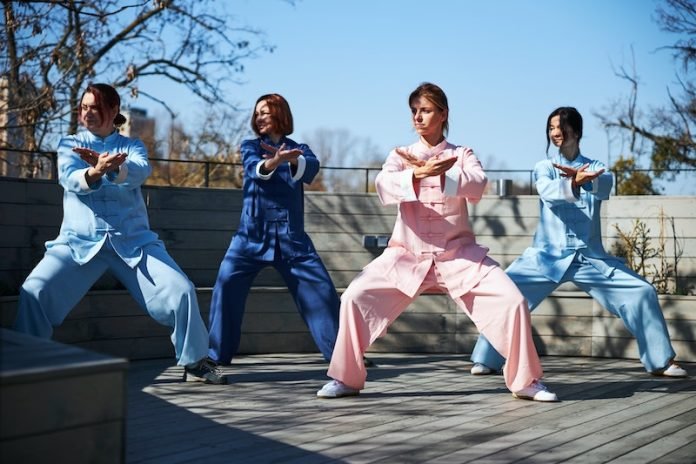
Scientists at Brown University have found out that qigong, a meditative movement routine, is just as good as regular exercise routines for improving fatigue related to cancer.
Understanding Cancer-Related Fatigue
Cancer and its treatment often cause fatigue. This tiredness can last a long time and make daily life hard, sometimes even more than pain, nausea, or sadness.
Up to 45% of people who have had cancer say they feel moderate to severe tiredness, even years after treatment ends.
While moving around can help with this tiredness, scientists still don’t know what kind of exercise or how much of it is best. For some people who feel very tired, regular exercise might be too much.
Qigong vs. Standard Exercise: The Study
The new study, led by Stephanie R. Jones, a neuroscience professor, examined how doing qigong regularly can affect tiredness from cancer. She compared this with tiredness treatments that involved exercise.
The study included 24 women who had finished cancer treatment at least eight weeks before the study started. All of them felt tired from cancer and agreed to take part in 10 weeks of classes.
Half of these women learned qigong. This is a practice from China that combines gentle movements and meditation.
The other half took a class about healthy living, which included physical exercise and advice about food and health.
Both groups had classes twice a week. Each class lasted about two hours. The researchers looked at changes in the women’s tiredness, emotional health, and stress before and after the 10 weeks.
The Results: Benefits of Both Qigong and Standard Exercise
Both the qigong and the healthy living classes significantly helped with the tiredness related to cancer. The improvements were even more than double what doctors and patients consider as a meaningful change.
The results from the women doing qigong were similar to the results from the women in the exercise and healthy eating class.
The women who did qigong also said they felt better emotionally and were less stressed.
The women who completed the exercise and nutrition program said they slept better and were less tired.
The Significance: Mind-Body Approaches for Cancer-Related Fatigue
Qigong, along with yoga, mindfulness, and tai chi, can help physical, emotional, and mental health. These could all be useful for people dealing with cancer-related fatigue.
A gentle practice like qigong might be easier for someone who has had cancer because it doesn’t require as much physical effort.
Future Research and the Legacy of Catherine Kerr
Jones and her team are now looking at how qigong might affect how a person perceives fatigue. They’re testing whether the treatment works because it changes how the brain and muscles communicate.
Jones said this study was small, with only 24 women, so more research needs to be done with larger and more diverse groups of people.
The study was inspired by Catherine Kerr, a former Brown University professor who passed away in 2016. Kerr was diagnosed with multiple myeloma, a type of cancer, in 1995.
She found qigong helpful and wanted to understand why. This curiosity led to the current study. Jones hopes this study continues Kerr’s work and paves the way for more research on how qigong can promote healing.
If you care about cancer, please read studies that a low-carb diet could increase overall cancer risk, and vitamin D supplements could strongly reduce cancer death.
For more information about health, please see recent studies about how drinking milk affects the risks of heart disease and cancer and results showing a safer, more effective cancer therapy.
The study was published in Integrative Cancer Therapies.
Copyright © 2023 Knowridge Science Report. All rights reserved.



